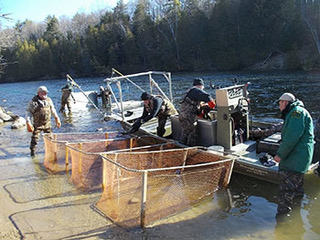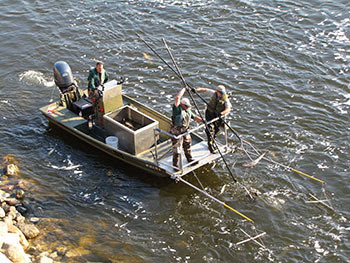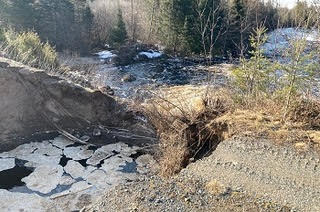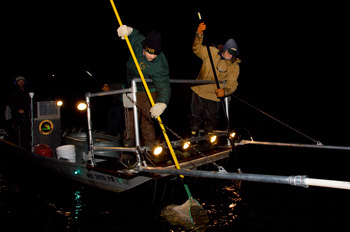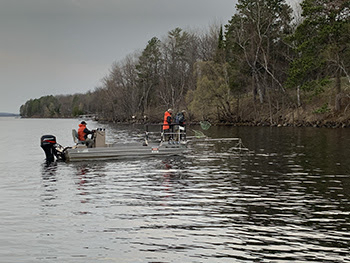Michigan DNR Collecting Walleye Eggs on Muskegon River This Spring
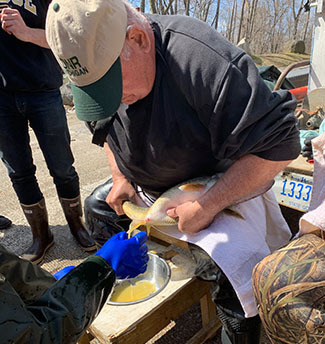
Muskegon River anglers should be on the lookout for Michigan Department of Natural Resources personnel collecting walleye eggs below Croton Dam this spring. Collections with electrofishing boats will start as early as the week of March 18 and conclude by April 12.
Anglers who wish to avoid the walleye collection activities should fish downstream. The DNR asks anglers to exhibit caution when fishing near the electrofishing boats. For angler safety during the electrofishing work, those wading will be asked to exit the water when boats approach.
The DNR plans to collect approximately 23 million walleye eggs from the Muskegon River this year, which will result in fry (fish that have just hatched) for transfer to rearing ponds and direct fry plants throughout the Lower Peninsula. Walleye fry transferred to ponds will be raised to fingerling size (approximately 1.5 to 2.5 inches) and stocked in late spring or early summer in lakes and rivers throughout the state.
Lake Michigan and many inland lake walleye populations in the Lower Peninsula depend on the fingerlings produced from Muskegon River eggs. Historically, the number of walleye in the spawning run has been estimated to be between 40,000 and 50,000 fish. The DNR crews will strip milt (sperm) and eggs from approximately 350 adult fish, which will be returned to the river – except for 60, which will be sent to Michigan State University for fish health testing.
“This adult population consists of mostly stocked fish,” said Ed Pearce, DNR fisheries technician supervisor who coordinates the egg take. “The Muskegon River has the largest run of walleye in the Lake Michigan watershed south of Green Bay, and the walleyes contribute to populations in other areas. For example, based on angler tag returns, walleye from the Muskegon River have been recaptured in Lake Macatawa, Spring Lake, Manistee Lake and Port Sheldon Lake, as well as the Grand, Kalamazoo, Pere Marquette and White rivers.”
Four or five days of fish collections are planned this spring. The date those collections will begin depends on water temperatures and the presence of ripe fish. This schedule can change daily for many reasons.
Electrofish sampling usually begins at Croton Dam each day about 8 a.m. and proceeds downstream to the Pine Street Access Site. If more eggs are needed, additional collections may occur downstream to the Thornapple Street Access Site.
Learn more about how the DNR manages Michigan’s fisheries at Michigan.gov/Fishing.

